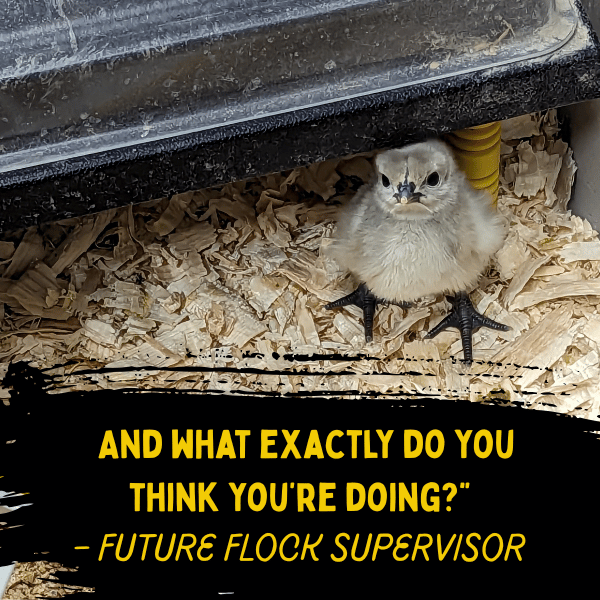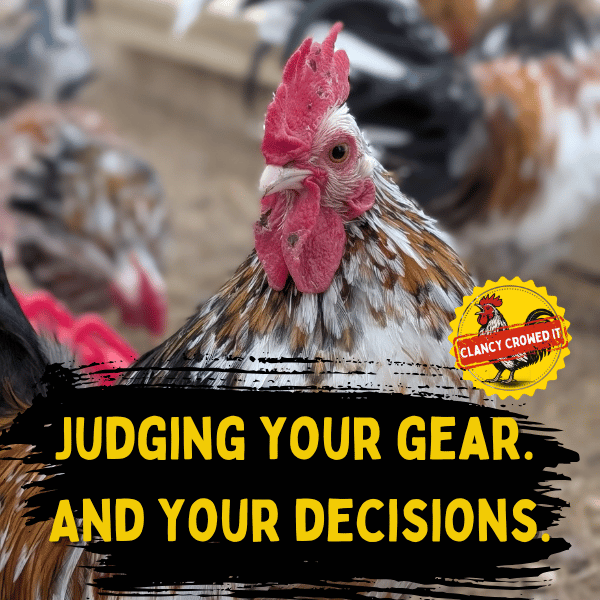In 2023, with the price of eggs soaring to $5+ per dozen, the idea of raising your own chickens is undeniably appealing. But before you dive into the world of poultry, there are some important factors you should carefully consider. This article aims to provide you with essential tips and guidance to help you make an informed decision about raising chickens. From hatching to happy, we've got you covered!
Hatching Your Own Chickens
Invest in a Quality Incubator for Egg Hatching
If you're keen on hatching your own chicks, it's crucial to invest in a reliable incubator, especially if you plan to hatch eggs more than once. While Styrofoam incubators vary in quality, they often don't last due to difficulties in thorough sanitization. We highly recommend the durable and efficient Borotto line of plastic incubators. Additionally, if you plan on hatching shipped eggs, we have some helpful tips for you!
Brooding Chicks
Keeping Chicks Warm and Cozy
Once you've acquired your chicks, they'll need a warm and nurturing environment until they're fully feathered. This means setting up a suitable brooder with a heat plate or heat lamp. Whether you choose to purchase one or make your own, the brooder must provide a draft-free space with adequate ventilation. Remember, it takes around 5 to 6 weeks for chicks to grow their full set of feathers.
The Rooster Dilemma
Unless you specifically purchase pullet (young hen) chicks, there's a high chance of having some roosters in your flock. Even when buying pullets, the occasional rooster might slip through. It's crucial to have a plan in place for what you intend to do with the roosters. Finding suitable homes for all of them can be challenging, so it's wise to consider this before hatching your own chicks or buying straight run (mixed sex) chicks.
The Waiting Game
Patience is Key: When Pullets Start Laying Eggs
Depending on the breed you choose, pullets generally start laying eggs at around 5 to 6 months of age. That means you'll need to provide feed, bedding, and other essentials for this duration before you can savor your first egg from the flock.
Coop and Run Considerations
Protecting Your Feathered Friends
Chickens require a predator-proof coop and run. It's important to familiarize yourself with the potential predators in your area, which can include raccoons, foxes, coyotes, possums, snakes, weasels, minks, hawks, and eagles, among others. Remember that standard chicken wire may not be sufficient to deter determined predators, so it's advisable to use sturdy hardware cloth in your runs.
Free-Ranging Flock and Its Consequences
If you plan to let your flock free-range, that's fantastic! However, keep a watchful eye out for those sneaky predators. They can be quite crafty! It's also worth noting that chickens are prolific poopers, so be prepared to find surprises everywhere. Don't forget to protect your flower beds and gardens since chickens love to scratch around in the dirt.
Chicken Health Matters
Seeking Reliable Chicken Health Advice
Chickens, like any living creatures, can get sick. If you need to treat your chickens, it's essential to seek accurate advice. As tempting as it may be, asking social media chicken groups or relying on Dr. Google can lead to conflicting and incorrect information. Instead, reach out to a seasoned breeder or, better yet, consult a veterinarian specializing in avian care. They have the expertise to provide you with reliable guidance on your chicken's health concerns. While vet visits or treatments may incur additional costs, it's crucial to prioritize the well-being of your feathered friends. In cases where a chicken's condition doesn't improve, humane euthanization may be necessary to prevent unnecessary suffering. Prepare yourself for potential vet bills or the difficult decision of euthanasia.
The Annual Molting Season
Feathers Falling Everywhere
Once a year, chickens go through a molting process. During this time, they shed feathers, their combs and wattles become pale, they may lose weight, and their egg-laying may pause. The duration of molting varies depending on factors like breed, nutrition, and environment. Be patient and give your chickens time to come out of their molting phase, as it may take a couple of months.
Dealing with Winter Egg Production
Shedding Light on Winter Laying
Most chicken breeds take a break from laying eggs during the winter months. However, you can encourage egg production by providing additional light. Keep in mind that hens have a predetermined number of eggs they will lay in their lifetime. By allowing them a natural break during the winter, you can extend the duration of their egg-laying years.
Check Your Local Ordinances
City Dwellers, Listen Up!
If you live within city limits, it's essential to check your local ordinances to determine whether chickens are allowed. Make sure you review the regulations before bringing home that adorable batch of chicks, to avoid any legal complications.
Is It Worth It?
The Joy of Raising Your Own Flock
While raising chickens requires effort and can incur expenses, having your own flock can bring immense joy and fulfillment. Knowing where your food comes from, whether it's eggs or meat, can be a rewarding experience. Picture your favorite hen running towards you when she sees you, reminding you that you forgot her treats. These heartwarming moments will make all the hard work worth it. Ultimately, the decision to raise chickens is a personal one, so ensure you have a clear understanding of the responsibilities and rewards before bringing home that box of fluffy chicks.
Conclusion
Raising chickens is an exciting venture, but it comes with its share of challenges and considerations. From hatching eggs with a quality incubator to providing proper brooding conditions, securing a predator-proof coop and run, and understanding chicken health care, there's a lot to learn and plan for. However, the rewards of having your own flock can be immeasurable. So, if you're ready to embark on this feathered journey, arm yourself with knowledge and enjoy the joyous experiences that come with raising your own chickens. Happy chicken-keeping!












